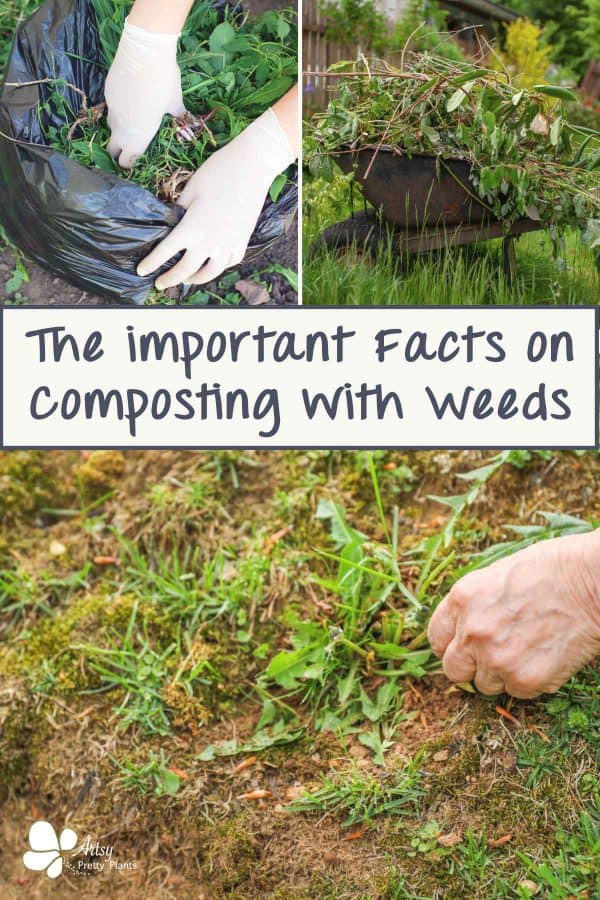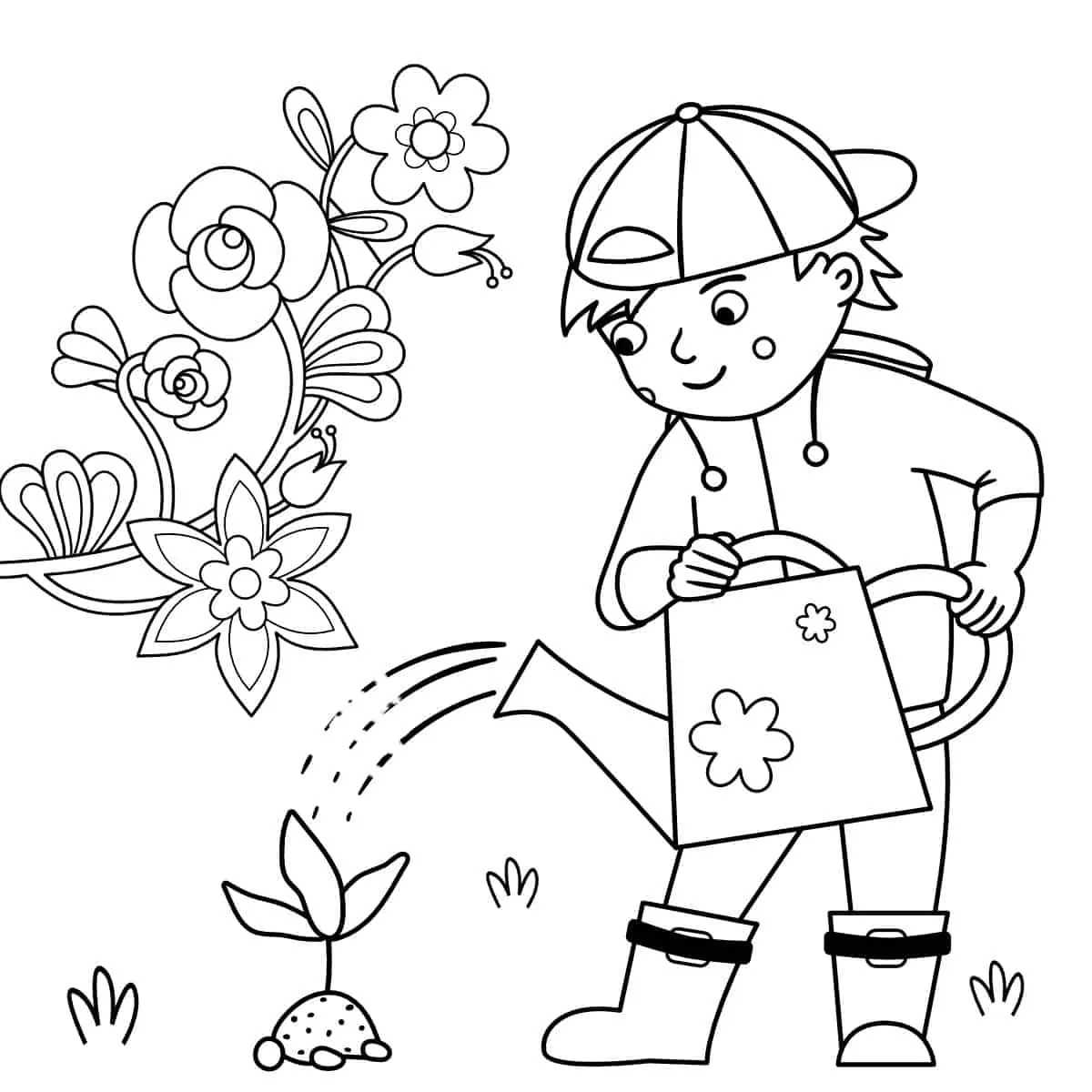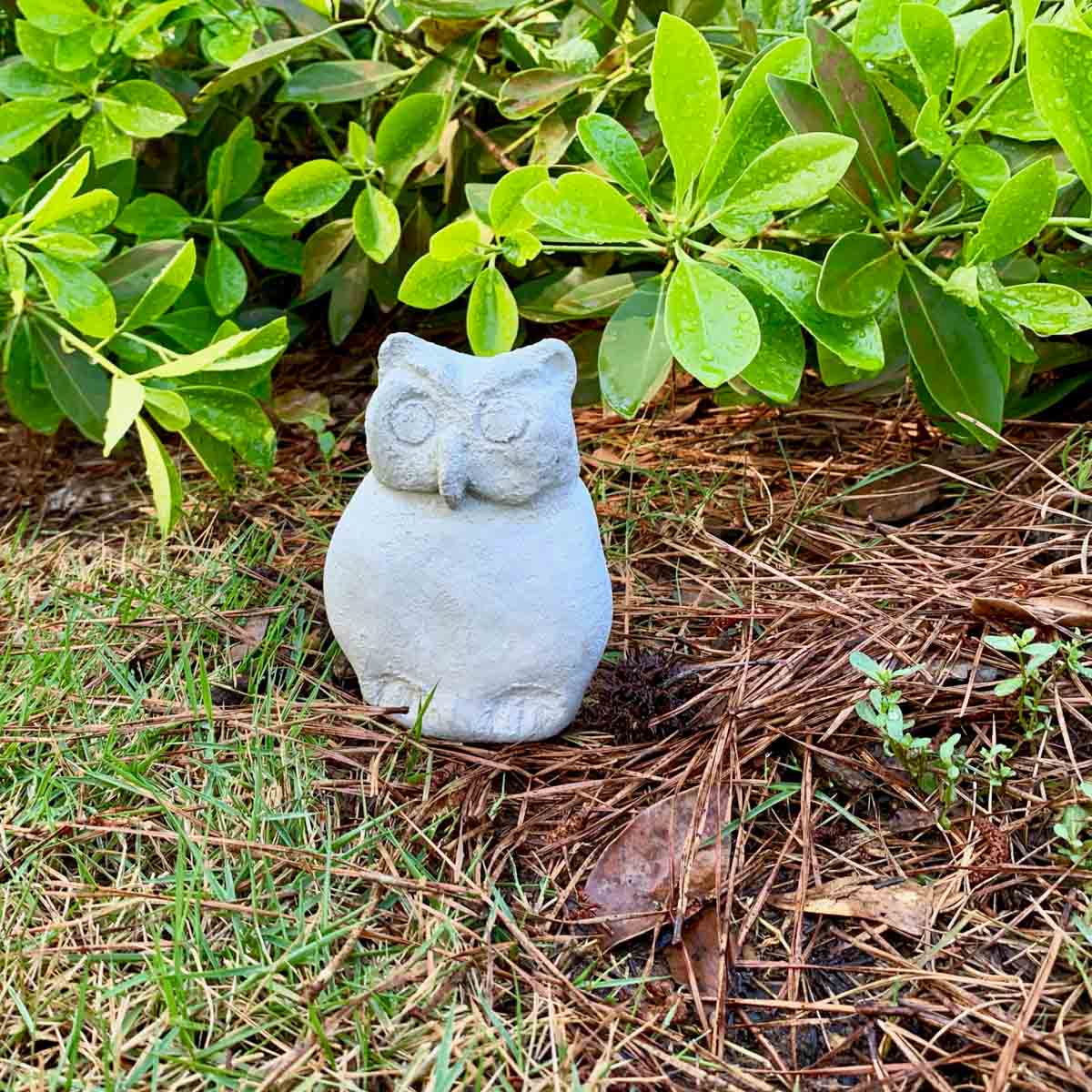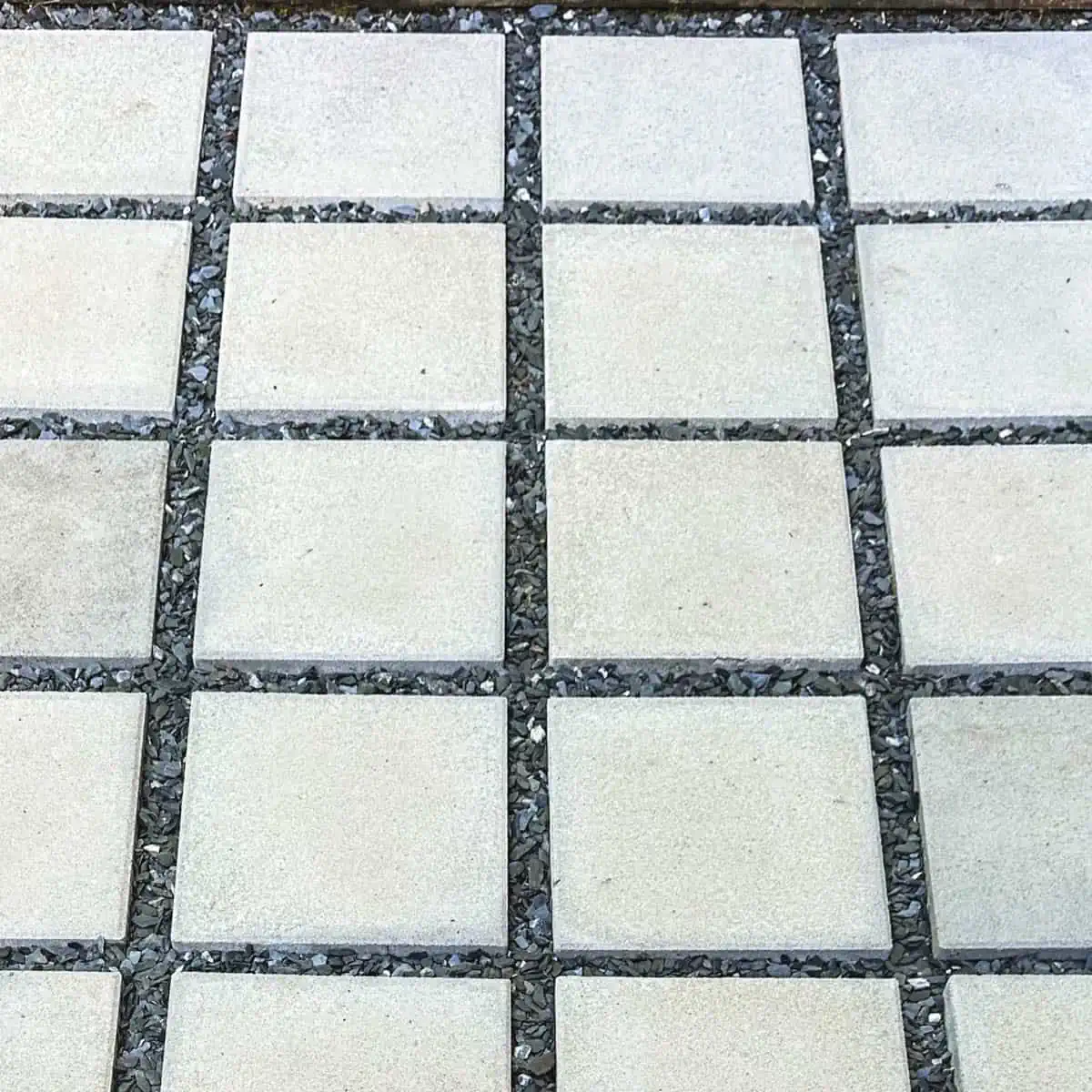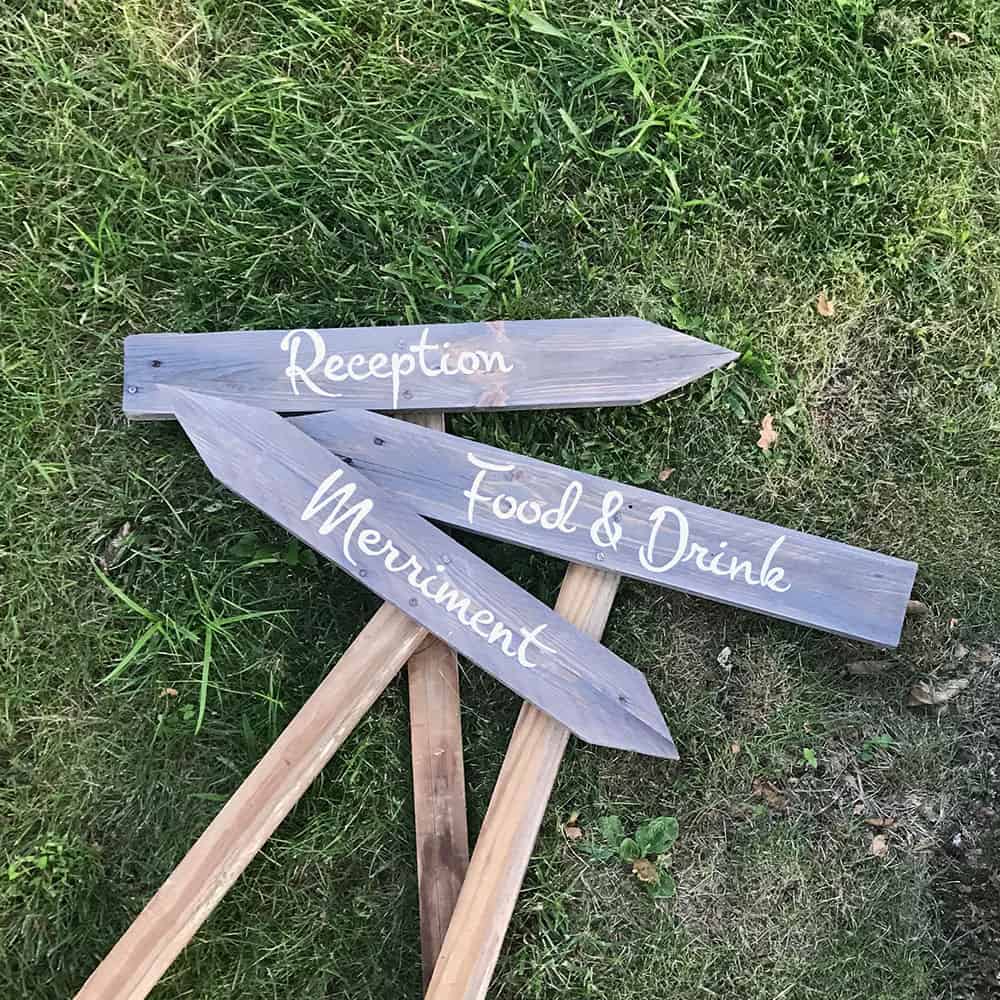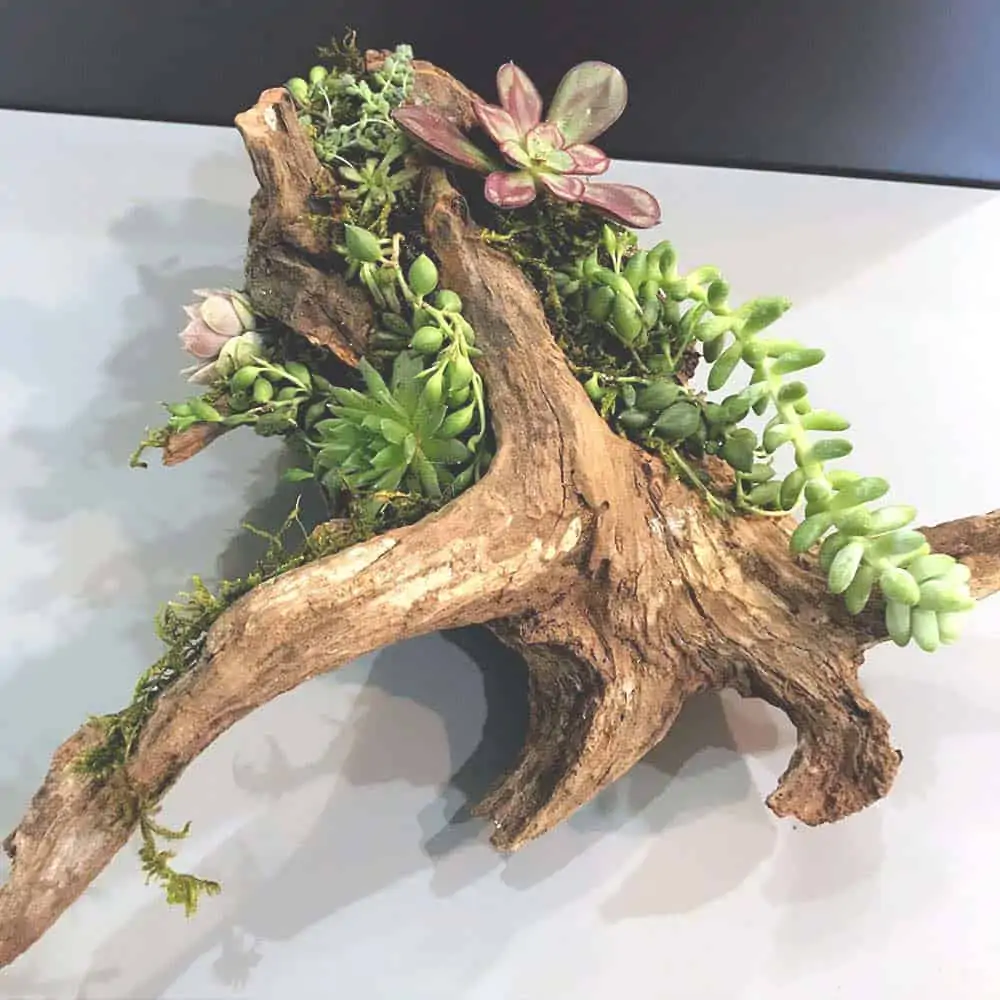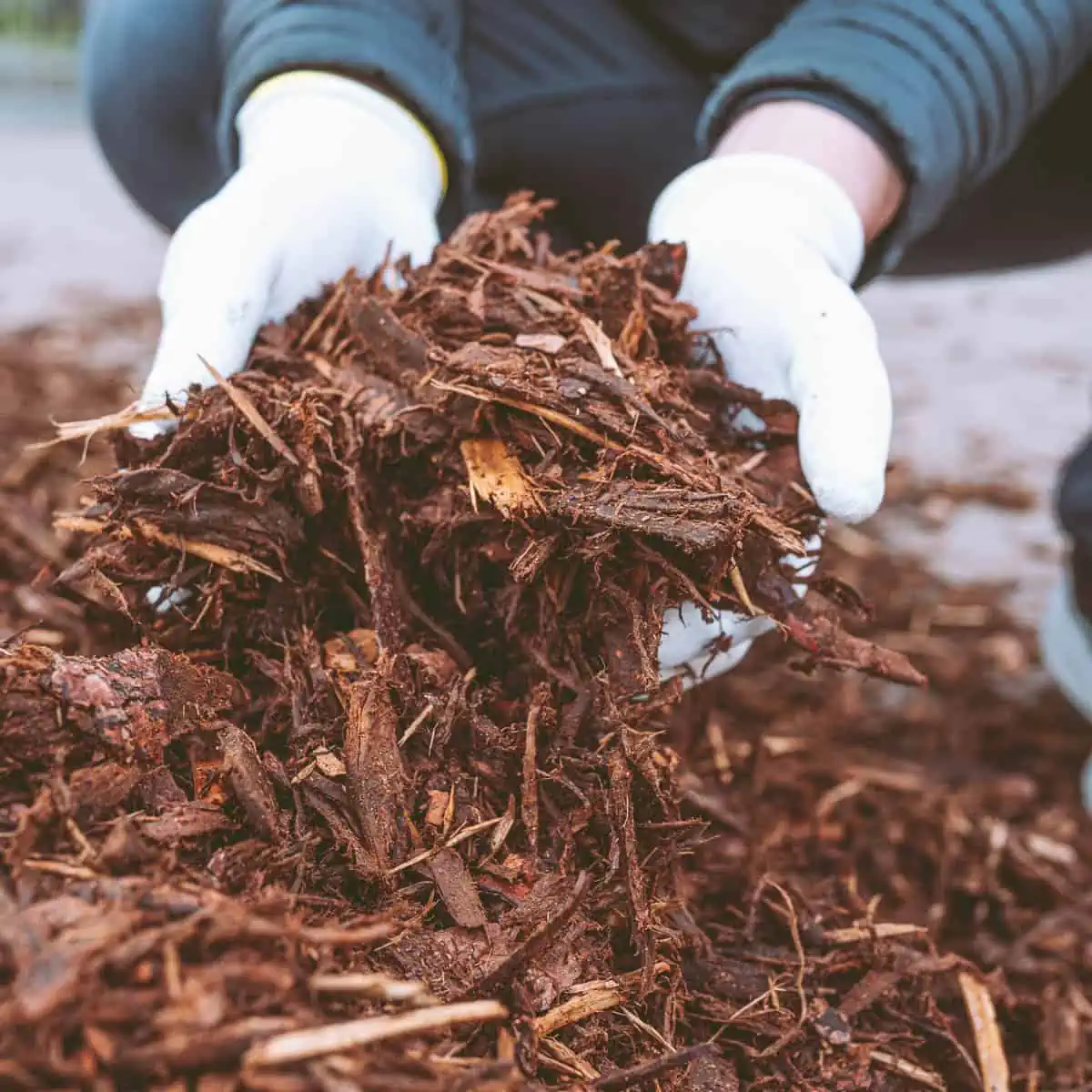Can You Compost Weeds? What You Should Know
In this article we’ll explain why you can compost weeds, but also what precautions you should take when composting them.
If you already have a compost pile, you may already know what can and can’t go into your own compost.
But some types of waste aren’t as black and white. Weeds are one of those!
The short answer is yes, you can compost weeds. There is a slight possibility of getting weeds in your garden using the compost.
Seeds and roots that survive composting can sometimes creep back into your garden.
However, there are ways to avoid this. It really comes down to the temperature of your compost.
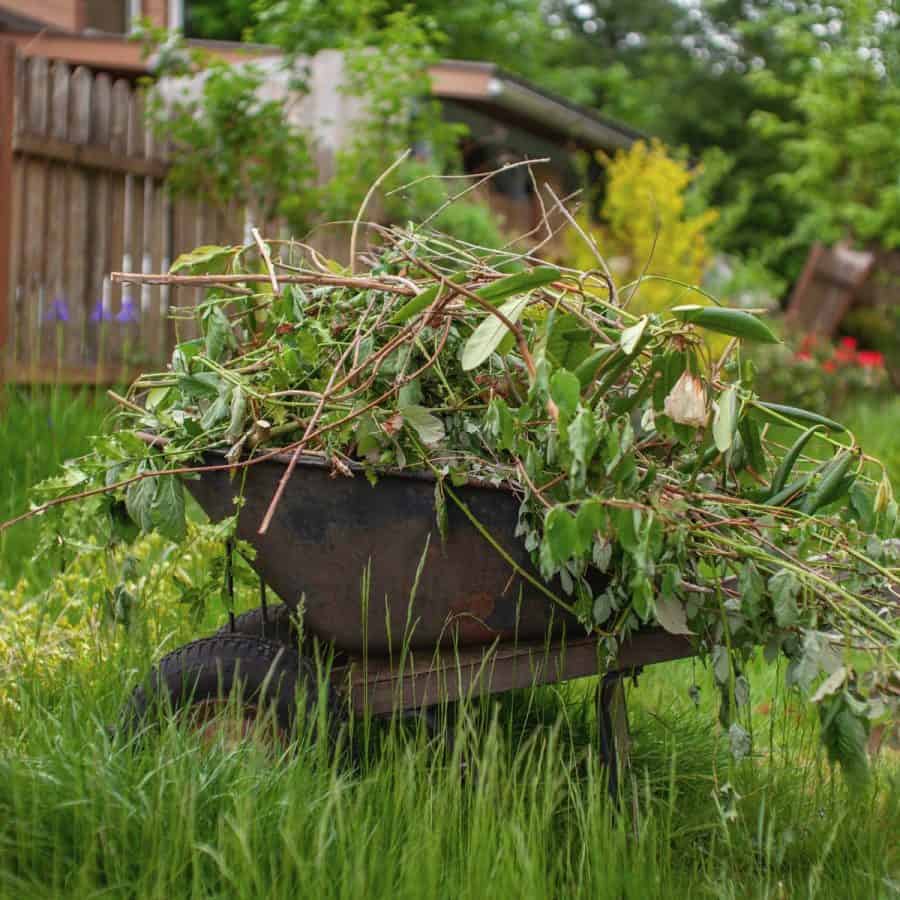
As long as it’s high enough, weed seeds will die and won’t become a problem later.
Can You Compost Weeds?
While it is an organic material, composting them could also introduce weeds back into your garden or flower beds.
The last thing you want is to take all that hard work and reintroduce weeds into your yard or garden.
Some gardeners avoid composting weeds, while others say it’s OK to toss Bermuda grass, dandelions, morning glory, and other types in with the rest of your compost.
If you decide to include weeds in your compost, there are a few catches and things that you should know.
How To Compost Weeds
First, the best time to pull weeds is when they are small and have not established deep roots or seed heads.

They’re easier to pull and less likely to spread when you use your compost later.
There are several effective methods for composting weeds and their seeds. One of the best ways is to use a specific type of composting process– the hot composting method – to ensure your compost pile gets hot enough to kill any seed heads or roots.
Getting your compost piles hot enough requires the right mixture of brown materials and green materials, regular turning, and a sunny location, preferably.
You can use a compost thermometer to check if your compost is getting hot enough (above 131 degrees Fahrenheit).
Here are a few tips and tricks to follow when you compost weeds:
1. Compost them before they have gone to seed or produce flowers, if possible. Remove any seeds or flower heads and dispose of them separately to reduce the chance of weed infestations.
2. Layer the weeds with other organic matter, such as coffee grounds, grass clippings, leaves, cardboard or wood chips, to maintain a balanced carbon-to-nitrogen ratio.
Nitrogen-rich greens are things like food waste and kitchen scraps. Carbon-rich browns are things like dry leaves and yard waste.
3. Turn the compost pile regularly to ensure proper aeration and moisture. This provides even heat distribution to help break down everything effectively.
4. Make sure the compost is as damp as a wrung-out sponge.
5. Don’t continuously add new organic waste to the pile.
Don’t forget to Pin it for later!
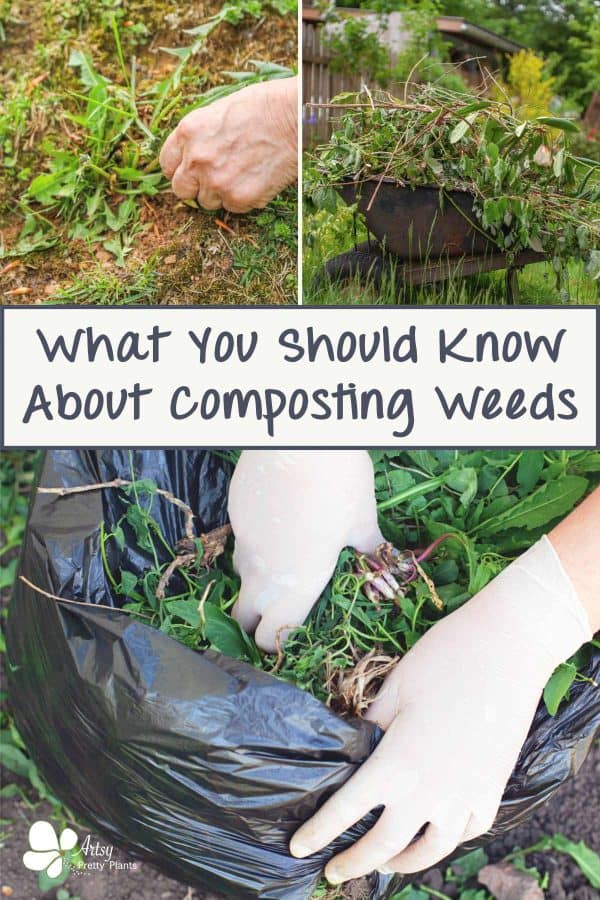
What If Hot Composting Isn’t Possible?
However, hot composting can be challenging with small home composting because it can be difficult to sustain high temperatures without extra tools or putting in a lot of extra time and effort.
Regardless, there are several things you can do, including killing the weeds and their seeds by sun-drying, soaking them in water before adding them to your compost heap or composting the weeds separately in black plastic bags.
Spread your weeds out on a surface, like a plastic tarp, to let them dry out in the sun for a couple of weeks, or leave the weeds to soak in a closed container for several weeks.
Then they’ll be completely safe to add to your compost even if you’re using a cold composting method.
How Do You Compost A Large Number Of Weeds?
If you have a significant amount, the best way to compost them is to bag them with black plastic bags. When using this method, you compost the weeds separately.
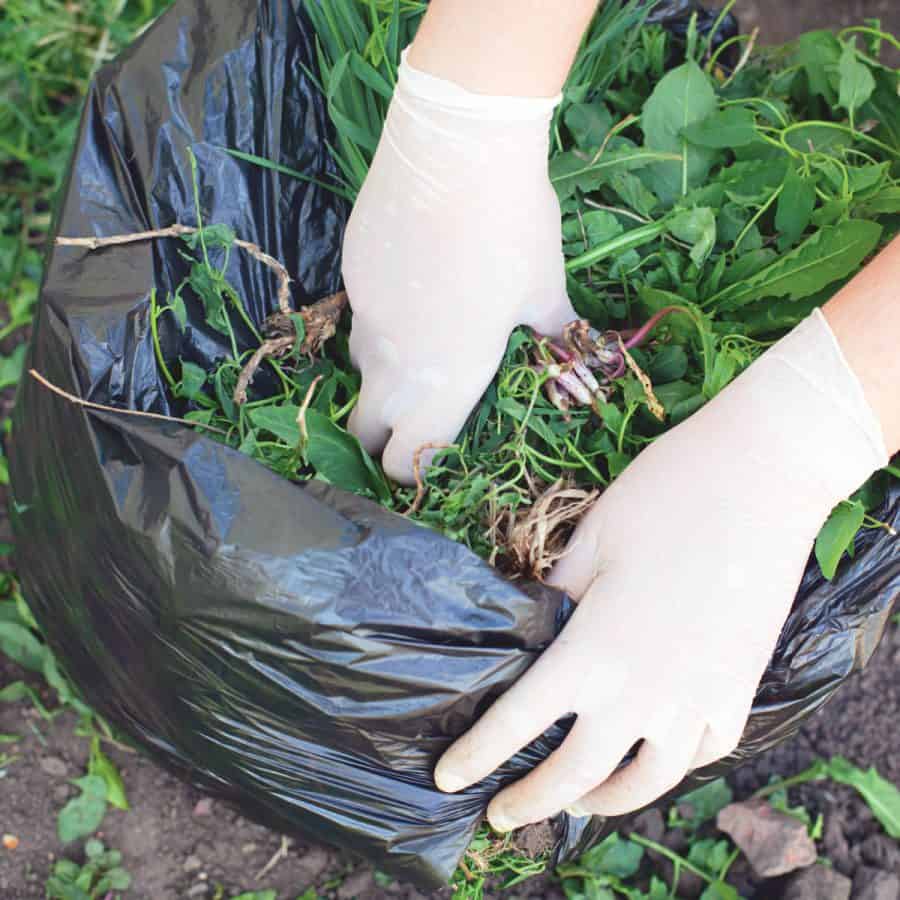
To compost large quantities of weeds using the black plastic bag process, here are some simple steps to follow:
- Place the weeds in heavy-duty black plastic bags (and the weeds only – no other organic waste!)
- Add a handful of soil and a bit of water to each bag
- Tie up the bags tightly and place them somewhere out of the way and forget about them for at least a year
What Is A Weed?
A weed is a type of plant that is considered undesirable, growing where it isn’t wanted.
This could be in any area controlled by humans, such as crops, orchards, or gardens.
Weeds are typically associated with negative aspects, but they can have some advantages too.
There are different types of weeds, including annual, perennial, biannual, and more.
Technically a weed can be anything in your garden growing in the “wrong place.” But what some may consider a weed, others love.
Weeds can be pretty, so that it can come down to preference sometimes.
Types Of Common Weeds
Weeds will depend on your location, but there are some very common weeds.
- Chickweed
- Crabgrass
- Dandelions
- Clover
- Thistle
- Ragweed
- Creeping Charlie
- Stinging Nettle
- Canada thistle
- Lambsquarters
- Wild Violet
- Couch Grass
- Horsetail
When Should Weeds Not Be Composted?
Unless you use the best technique when composting the weeds, their roots and seeds can survive the composting process.
This can then introduce the weeds to your garden beds as you spread the compost.
This can be counter-productive to using compost, something that’s supposed to make your garden thrive.
But if you’re careful, you can turn them into good compost.
Note: Some weeds are considered highly invasive weeds. They can be harmful to livestock and crops. You can find a list of undesirable weeds determined by the US noxious weeds act.
Composting Weeds FAQs
Can I Put Dried Weeds In Compost?
Yes, you can add thoroughly dried weeds to your compost pile. During the warmer months, spread the weeds on a surface (not on your grass or soil) and let the sun dry them for several weeks.
Can You Compost Weeds Killed With Weed Killer?
It can be problematic to compost weeds that have been killed with herbicide. For one, not all herbicides destroy the weed’s seeds.
And, of course, the chemicals can be harmful to the good microbes in the composting process.
Some herbicides may kill the weed plants, but the seeds are left to infiltrate your compost.
And the herbicides that are strong to kill everything are likely too toxic for the compost.
So, it’s a good idea to keep herbicide-killed weeds out of your compost to keep your garden and flower beds safe.
Can You Put Weeds In A Compost Tumbler?
You can put weeds in a tumbler if you maintain high enough temperatures
A tumbler may make it easier to keep temperatures high than a pile as they generate and retain heat better.
You can also sun-dry or soak the weeds before adding them to your tumbler to be on the safe side.
This article explains where the best place is to put a compost bin.
In Summary
Composting weeds is a sustainable and efficient method to reuse yard and garden waste.
By following proper composting techniques, such as removing seeds, creating a well-balanced pile, and allowing sufficient time for decomposition, you can transform weeds into nutrient-rich compost, benefiting your garden while minimizing weed growth.
For more composting information, check out this article on the difference between compost and topsoil and how to use compost with your topsoil.
Don’t forget to Pin it for later!
